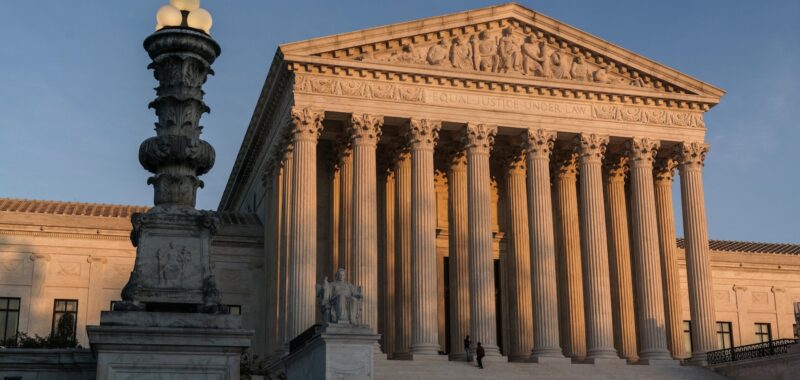WASHINGTON — The Supreme Court on Wednesday kept on hold the latest multibillion-dollar plan from the Biden administration that would have lowered payments for millions of borrowers, while lawsuits make their way through lower courts.
The justices rejected an administration request to put most of it back into effect. It was blocked by 8th U.S. Circuit Court of Appeals.
In an unsigned order, the court said it expects the appeals court to issue a fuller decision on the plan “with appropriate dispatch.”
The Education Department is seeking to provide a faster path to loan cancellation, and reduce monthly income-based repayments from 10% to 5% of a borrower’s discretionary income. The plan also wouldn’t require borrowers to make payments if they earn less than 225% of the federal poverty line — $32,800 a year for a single person.
Last year, the Supreme Court’s conservative majority rejected an earlier plan that would have wiped away more than $400 billion in student loan debt.
Cost estimates of the new SAVE plan vary. The Republican-led states challenging the plan peg the cost at $475 billion over 10 years. The administration cites a Congressional Budget Office estimate of $276 billion.
Two separate legal challenges to the SAVE plan have been making their way through federal courts. In June, judges in Kansas and Missouri issued separate rulings that blocked much of the administration’s plan. Debt that already had been forgiven under the plan was unaffected.
The 10th U.S. Circuit Court of Appeals issued a ruling that allowed the department to proceed with a provision allowing for lower monthly payments. Republican-led states had asked the high court to undo that ruling.
But after the 8th Circuit blocked the entire plan, the states had no need for the Supreme Court to intervene, the justices noted in a separate order issued Wednesday.
The Justice Department had suggested the Supreme Court could take up the legal fight over the new plan now, as it did with the earlier debt forgiveness plan. But the justices declined to do so.

